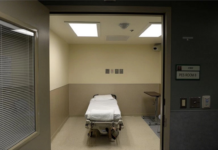Will the European Elections Be a Chance for Mental Health?
European citizens from 27 different countries will soon go to the polls to elect their representatives in the European Parliament for the next five years. As an advocacy organisation, we see those elections as an opportunity to call on current and future European leaders and policymakers to bring mental health to the heart of European policies.
Berlin Manifesto for Humane Psychiatry Released
Changing the mental health and psychosocial support system in Germany requires public debate about the ways our society should help and support people in mental crisis and with chronic mental health problems. We believe the driving force behind all help and support should be humanitarianism and respect for inalienable human rights.
MIA Survey: Ex-patients Tell of Force, Trauma and Sexual Abuse in America’s Mental Hospitals
In a MIA survey of people who had been patients in mental hospitals, nearly 500 respondents told of an experience that was often traumatic, and frequently characterized by a violation of their legal rights, forced treatment with drugs, and physical or sexual abuse. Only 17% said they were “satisfied” with the “quality of the psychiatric treatment” they received.
On the Link Between Psychiatric Drugs and Violence
One of psychiatry's most obvious vulnerabilities is the fact that various so-called antidepressant drugs induce homicidal and suicidal feelings and actions in some people, especially late adolescents and young adults. This fact is not in dispute, but psychiatry routinely downplays the risk, and insists that the benefits of these drugs outweigh any risks of actual violence that might exist.
Ode to Biological Psychiatry
Sometimes I get so sick of the lies of biological psychiatry that I must speak out. At these moments I find silence to be a kind of emotional death: a death of my spirit, a death of my critical faculties, a death of my courage. I speak out because I am alive and I wish to align with life.
Some Thoughts on Insanity Defense
I am not comfortable with an all-or-nothing insanity defense that is both legally and socially stigmatizing because it sets the person apart as someone who is legally determined to be incapable of being treated as a moral agent. This stigma spills over onto all people who are psychiatrized, and it is part of the conception of madness that also ends up serving as a justification for civil commitment, since we are perceived (incorrectly) as outside the reach of ordinary law.
A Three Pronged Approach to Mental Health System Change
I thought I would begin my blogging career with a description of how I see three elements that reinforce each other in ways that...
Dehumanization Linked to Poorer Mental and Physical Health
A new review finds that dehumanizing language, including self-dehumanization, is connected to anxiety, depression, and disordered eating.
How Do Clients Solicit Medication Changes With Psychiatrists?
Researchers examine psychiatrist-client interactions and find that clients are often left with few opportunities to make explicit requests to change their medication regimen.
It’s the Coercion, Stupid!
Both Michel Foucault and Thomas Szasz dated the beginnings of a distinct Western institutional response to madness to the late 1500s-early 1600s. But while for Foucault it started in France with the creation of the public “hôpital général” for the poor insane, for Szasz it began in England with the appearance of for-profit madhouses where upper class families shut away inconvenient relatives. Regardless of their different ideas on the beginnings of anything resembling a mental health system, both authors agree that it was characterized by the coercive incarceration of a specially labeled group.
You Can Have Any Kind of Treatment You Want, Providing it’s Our Kind
Mental health nurse education supports institutional psychiatric practice in an insufficiently questioning way. Its formal curricula in universities are often undermined by the informal curricula of practice environments. As an institution, mental health nursing pays insufficient attention to both these issues because it is an arguably un-reflexive and rule-following discipline.
United Nations Report Calls for Revolution in Mental Health Care
In a new report, the United Nations Special Rapporteur on the right to health, Dr. Dainius Pūras, calls for a move away from the biomedical model and “excessive use of psychotropic medicines.”
UN Expert Calls for Major Shift in Suicide Prevention Efforts on World Mental Health...
On World Mental Health Day, UN expert Dainius Pūras calls for a shift away from medical solutions toward a rights-based approach to make life “more liveable.” He calls for states to address societal determinants of mental health, promoting autonomy and resilience.
Coercion
I am a psychiatrist who believes that involuntary treatment is rarely effective in the long run but I am also a psychiatrist who sometimes forces people into hospitals against their will.
Forced Psychiatry is Torture
I am a survivor of forced psychiatry, and I bring this perspective with me as a human rights lawyer. People with disabilities have a right to be as we are and not to have our bodies and minds made over to suit other people. We alone have the right to decide whether a medical treatment will support who we are or detract from who we are, and that is why free and informed consent is the essential requirement.
Feral Psychiatry: The Case of Garth Daniels
Garth Daniels, a 39-year-old Melbourne man, has been shackled for 110 days and forced to undergo ECT 94 times at three times a week against his will. Last year, his family asked me to provide a second opinion on Garth’s case. As predicted, my recommendations against continued ECT were quickly dismissed by the hospital. There are critically important issues at stake in this case.
Criticism of Coercion and Forced Treatment in Psychiatry
A recent editorial, published in BMJ, argues there is an increase in coercive measures in psychiatry that are damaging to individuals diagnosed with mental illness.
Madness in Civilisation: A Cultural History of Insanity
Until recently the history of psychiatry was a neglected backwater whose murky depths were explored largely by psychiatrist. The impression conveyed by books such as Tuke’s Chapters in the History of the Insane in the British Isles, Macalpine and Hunter's Three Hundred Years of Psychiatry: 1535 - 1860, Berrios and Freemen's 150 Years of British Psychiatry 1841 - 1991, or Fuller Torrey and Miller's The Invisible Plague, is one that sees psychiatry and modern systems of mental health care as the inevitable outcome of progress through scientific thought, a (white European male-led) narrative from darkness and ignorance to enlightenment and knowledge.
The Evidence of Our Convictions
We are an unlikely duo, sharing secrets only known to insiders, the inmates and staff of Bader 5, Boston Children's Hospital's adolescent psychiatric unit. I am the nurse who blew the whistle that no one heard in 2010, she is the teenager who was imprisoned on Bader 5 for nine months in 2013. We met for the first time on this past Thanksgiving Day at Yale New Haven Children's Hospital, where she has been a *medical* patient for the past nine weeks.
The Helping Room
Every culture has its share of individuals who break down in bewilderment. People who hallucinate, behave beyond norms, seek to die, think in strange ways.
We Are the People
Mahatma Gandhi said, “First they ignore you, then they laugh at you, then they fight you, then you win.” With Pennsylvania Republican Representative Tim Murphy currently trying to push his Murphy Bill (HR 3717) through Congress, the battle is clearly on. And now, we are in the fight of our lives.
The Media’s New Hashtag: #GuardianshipIsGood for Britney Spears
Recent press coverage of top star Britney Spears, who remains under a personal and professional guardianship, reflects conventional attitudes about “mental illness” that are both stigmatizing and encourage legislation that promotes forced treatment.
The Mental Health Reform Act of 2016 (SB 2680) Would Be a Huge Step...
There is indeed a crisis in the mental health business. The crisis derives from psychiatry's spurious and self-serving premise that all significant problems of thinking, feeling, and/or behaving are brain illnesses that are correctable by psychiatric drugs.
Tim Murphy Mental Health Bill: More Expensive and Less Effective
Here is a short review of the Tim Murphy mental health bill. I show the research that was left out when the bill was written, how advocates can approach the issue, and what the main problem with ignoring the research will be.
The Law’s Flaw
Tom Burns, M.D., Psychiatrist and Professor of Social Psychiatry at Oxford, recently said of Assisted Outpatient Treatment (AOT) that “compulsion added to otherwise decent care makes no difference.” This was no easy conclusion for Burns, who for twenty years “argued ardently” for Community Treatment Orders (CTO’s), which are described as the British version of California’s newly passed AOT laws. "I worked for more than 20 years to get the CTO law passed," he said. "I thought such laws were going to make a difference, but they don't."




















